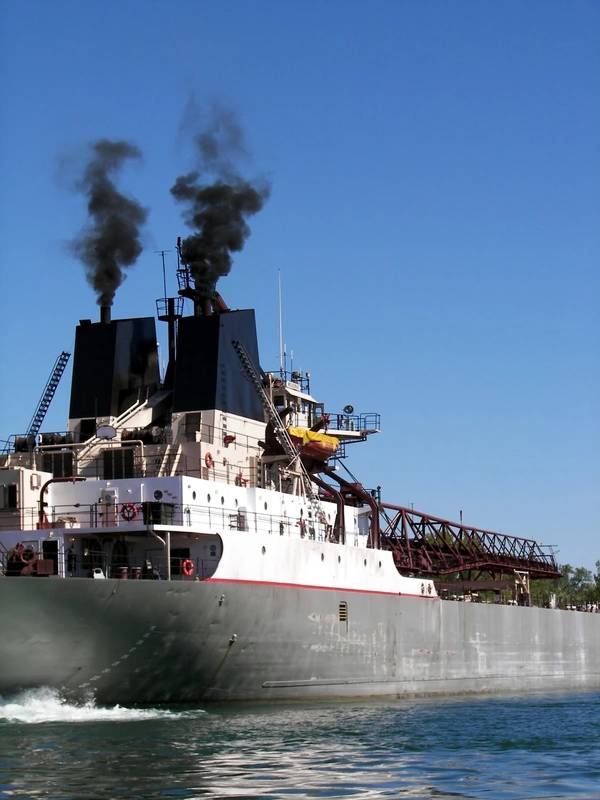
U.S. sanctions on a top Chinese shipping fleet is set to produce a totally unintended result -- less burning of the dirtiest marine fuels at sea at the start of next year, Refinitiv data showed on Tuesday.
The move to blacklist ships from COSCO on Sept. 24 for allegedly ferrying sanctioned Iranian oil will undercut demand for ships' traditional means of power because a vessel crunch meant fewer docked and attached kit to filter the dirtier fuels.
From January 2020, the United Nations International Maritime Organization (IMO) will ban ships from using fuel with a sulphur content above 0.5%, compared with 3.5% now.
This high sulphur fuel oil (HSFO) will not be banned outright but allowed if vessels attach at port a cleaning device called a scrubber -- something fewer shipowners and brokers did given the highest profits for freight seen in years.
"The postponement of scrubber installations triggered by soaring freight rates in October will only delay the absorption of HSFO volumes next year, exacerbating the decline in HSFO demand especially in H1 2020," Refinitiv said in a report.
The IMO rules herald the biggest transformation in shipping power since oil replaced coal over a century ago.
Airborne pollutants like sulphur and nitrates which are deeply harmful to human health were the target of the IMO rules, which allowed the use of scrubbers in order not to upend the shipping and refining industries.
Some industry watchdogs have questioned that exception, however, pointing to sea pollution in sensitive waterways.
Refinitiv estimated that just 2,500 ships will be fitted with scrubbers by Jan. 1 compared with 4,000 initially projected by the IMO.
However, it projected a rebound in demand as the year goes on and more ships carry out their re-tooling.
"We expect the demand for HSFO for scrubber installed ships to account for about 2.5 million megatonnes per month (16% of global bunker demand) as of Jan. 1 2020 and increasing to almost 4 million megatonnes month once the current orders are completed."
Reporting by Noah Browning



